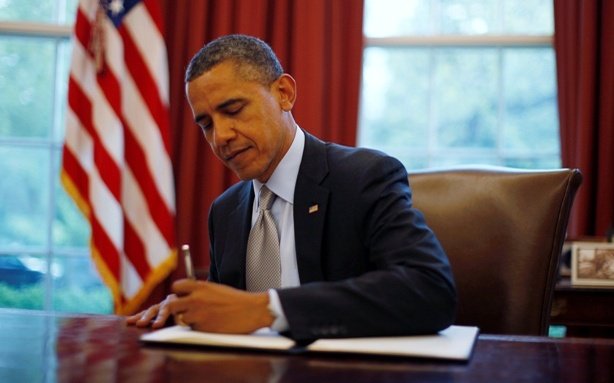
noun, plural ve·toes. Also called veto power (for defs 1, 4).
- the power or right vested in one branch of a government to cancel or postpone the decisions, enactments, etc., of another branch, especially the right of a president, governor, or other chief executive to reject bills passed by the legislature.
- the exercise of this right.
- Also called veto message. a document exercising such right and setting forth the reasons for such action.
- a nonconcurring vote by which one of the five permanent members of the UN Security Council can overrule the actions or decisions of the meeting on matters other than procedural.
- an emphatic prohibition of any sort.
- pocket veto.
verb (used with object), ve·toed, ve·to·ing.
- to reject (a proposed bill or enactment) by exercising a veto.
- to prohibit emphatically.
noun plural -toes
- the power to prevent legislation or action proposed by others; prohibitionthe presidential veto
- the exercise of this power
- Also called: veto message US government a document containing the reasons why a chief executive has vetoed a measure
verb -toes, -toing or -toed (tr)
- to refuse consent to (a proposal, esp a government bill)
- to prohibit, ban, or forbidher parents vetoed her trip
1706, from veto (n.). Related: Vetoed; vetoing.
1620s, from Latin veto, literally “I forbid,” first person singular present indicative of vetare “forbid,” of unknown origin. Used by Roman tribunes who opposed measures of the Senate or magistrates.
A vote that blocks a decision. In the United Nations, for example, each of the five permanent members of the Security Council has the power of veto.
The power of a president or governor to reject a bill proposed by a legislature by refusing to sign it into law. The president or governor actually writes the word veto (Latin for “I forbid”) on the bill and sends it back to the legislature with a statement of his or her objections. The legislature may choose to comply by withdrawing or revising the bill, or it can override the veto and pass the law, by a two-thirds vote in each house.
 Liberal Dictionary English Dictionary
Liberal Dictionary English Dictionary